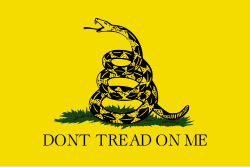Some thoughts for Monday. Seemingly unconnected, maybe not.
"Why, of course, the people don't want war," Goering shrugged. "Why would some poor slob on a farm want to risk his life in a war when the best that he can get out of it is to come back to his farm in one piece. Naturally, the common people don't want war; neither in Russia nor in England nor in America, nor for that matter in Germany. That is understood. But, after all, it is the leaders of the country who determine the policy and it is always a simple matter to drag the people along, whether it is a democracy or a fascist dictatorship or a Parliament or a Communist dictatorship."
There is one difference," I pointed out. "In a democracy the people have some say in the matter through their elected representatives, and in the United States only Congress can declare wars."
"Oh, that is all well and good, but, voice or no voice, the people can always be brought to the bidding of the leaders. That is easy. All you have to do is tell them they are being attacked and denounce the pacifists for lack of patriotism and exposing the country to danger. It works the same way in any country."
www.snopes.com/quotes/goering.htm

How Many Men?
Suppose that one man takes your car from you at gunpoint. Is this right or wrong?
Now suppose that it's a gang of five men that forcibly takes your car from you. Still wrong? Still stealing?
Now suppose that it's ten men that stop you at gunpoint, and before anything else they take a vote. You vote against them taking your car, but the ten of them vote for it and you are outvoted, ten to one. They take the car. Still stealing?
Suppose it's twenty men and one acts as negotiator for the group, one takes the vote, one oversees the vote, two hold the guns, one drives. Does that make it okay? Is it still stealing?
Suppose it's one hundred men and after forcibly taking your car they give you back a bicycle. That is, they do something nice for you. Is it still stealing? (specialization of labor)Suppose the gang is two hundred strong and they not only give you back a bicycle but they buy a bicycle for a poor person as well. Is it still wrong? Is it still stealing?
How about if the gang has a thousand people? ten thousand? A million?
How big does this gang have to be before it becomes okay for them to vote to forcibly take your property away without your consent? When, exactly, does the immorality of theft become the alleged morality of taxation?
When you have time, and if you are interested, you may want to read The Income Tax: Root of all Evil by Frank Chodorov available on line at Mises.org. An excerpt from the book:
The most important of these indirect taxes are tariffs and excise levies. Tariffs are paid by the importer, who transfers the charge to his customer, who in turn adds the cost to the price he charges the next processor, and so on down until the ultimate consumer absorbs the original importer’s outlay, plus all the profits that have accrued to each handler. Excise taxes, like those paid on tobacco and liquor, are collected through the sale of stamps and licenses. Sales taxes are likewise found in the price of goods.
Indirect taxes are mere money raisers; there is nothing in the character of these taxes that involves any other purpose. In levying them, the government does not call on any principle other than that the citizen must pay for the upkeep of his government, in proportion to the amount of goods he consumes. It is as if the government were saying to the citizen: "Sorry, old man, but we need money with which to carry on this political establishment, and we don’t have any other source of money but you; we will, however, ease the pain of payment by hiding these taxes in the price of the goods you buy." The government does not question the right of the citizen to his property. The citizen need not pay these taxes; he can go without.
This alternative does not apply to direct taxes. The principal direct taxes are those levied on inheritances and incomes. … direct taxes are paid directly to the government. They are not charged against the consumer in price, although, as we shall see later, they affect his standard of living even more materially.
Income and inheritance taxes imply the denial of private property, and in that are different in principle from all other taxes.
The government says to the citizen: "Your earnings are not exclusively your own; we have a claim on them, and our claim precedes yours; we will allow you to keep some of it, because we recognize your need, not your right; but whatever we grant you for yourself is for us to decide."
Read more: The Income Tax: Root of all Evil, by Frank Chodorov
A government big enough to give you everything you want, is strong enough to take everything you have.
Thomas Jefferson
Note: The flag is the first American Union Jack. The other more commonly recognized flag is the Gadsden Flag.
The use of the timber rattlesnake as a symbol of the American colonies can be traced back to the publications of Benjamin Franklin. In 1751, he made the first reference to the rattlesnake in a satirical commentary published in his Pennsylvania Gazette. It had been the policy of Britain to send convicted criminals to America, so Franklin suggested that they thank the British by sending rattlesnakes to England.

In 1754, during the French and Indian War, Franklin published his famous woodcut of a snake cut into eight sections. It represented the colonies, with New England joined together as the head and South Carolina as the tail, following their order along the coast. Under the snake was the message "Join, or Die". This was the first political cartoon published in an American newspaper.






No comments:
Post a Comment
You are not entitled to your opinion. You are entitled to your informed opinion. No one is entitled to be ignorant.
Harlan Ellison